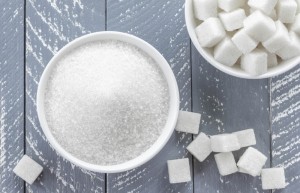IBC: Sugar tax is not an effective solution
 The Irish Beverage Council (IBC) has hit out at plans for a proposed sugar-tax in Ireland calling the plans from various political parties as “ill-informed opinion” which will cost consumers money and do nothing to improve public health.
The Irish Beverage Council (IBC) has hit out at plans for a proposed sugar-tax in Ireland calling the plans from various political parties as “ill-informed opinion” which will cost consumers money and do nothing to improve public health.
IBC director Kevin McPartlan said: “In the debate on a sugar tax, simple, verifiable facts are being ignored in favour of populist sounds bites based on ill-informed opinion. An additional and blunt tax on one ingredient and product is not an effective way to combat the complex and multi-faceted obesity challenge.”
The condemnation from the IBC follows the disclosure of proposals over the weekend from Fine Gael, Ireland’s largest political party, to impose a 10 percent tax on cans of sugary drinks to be introduced in 2018.
The pledge marked a U-turn from the party, which had previously argued against such a tax.
However, the party’s finance minister Michael Noonan has now softened the party’s stance. He said: “A less ambitious tax on sugar enhanced drinks might be worth examining, because you could focus it and you would know that there weren’t unexpected consequences.”
“The drinks thing is an issue and I wouldn’t be averse to looking at it, but the details would have to be worked out very carefully.” The Fine Gael party, which is currently in power as part of a coalition government, is looking to appeal to voters ahead of the general election taking place later this month in Ireland.
But the IBC, which represses manufactures and distributers of soft drinks, bottled water and fruit juices in Ireland, pointed to the examples of sugar taxes in France, Mexico and Denmark to indicate that such a move would be foolhardy.
It said such a tax in Mexico had only reduced calorie intake by 4.7 calories; had led to a worrying impact on industry sales in France; while it said Denmark had abandoned plans for such a tax after a year because of its economic impact.
The IBC, which pointed to the inroads made to improve the nation’s health through promotion of low calorie products, said: “Despite its introduction in several countries around the world, no causal link has ever been established between additional tax on sugar sweetened beverages and reduction in obesity.”
McPartlan added: “We are all rightly concerned about obesity but the contention that an additional tax on products which accounts for just three percent of the calories consumed in Ireland will solve it is nonsense.”
“We already pay VAT on soft drinks. This is an unnecessary additional cost to consumers in Ireland dressed up as a public health measure. It will not solve the root causes of obesity. It is simply another stealth tax.”
“It would be better to focus on evidence led interventions that will make a positive difference to obesity. It is vital that whoever makes up the next government talks to industry so that effective initiatives are not scarified for snappy election soundbites.”

































